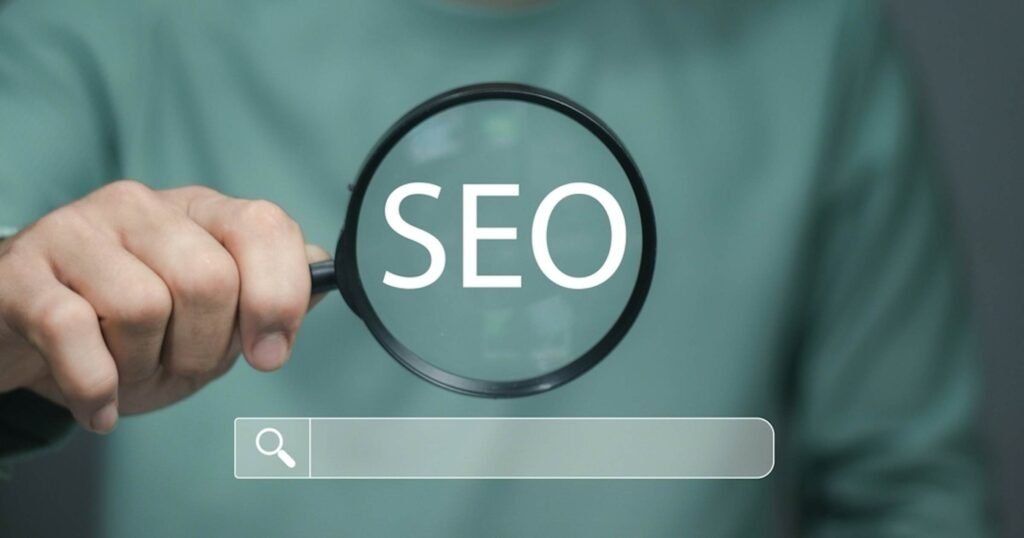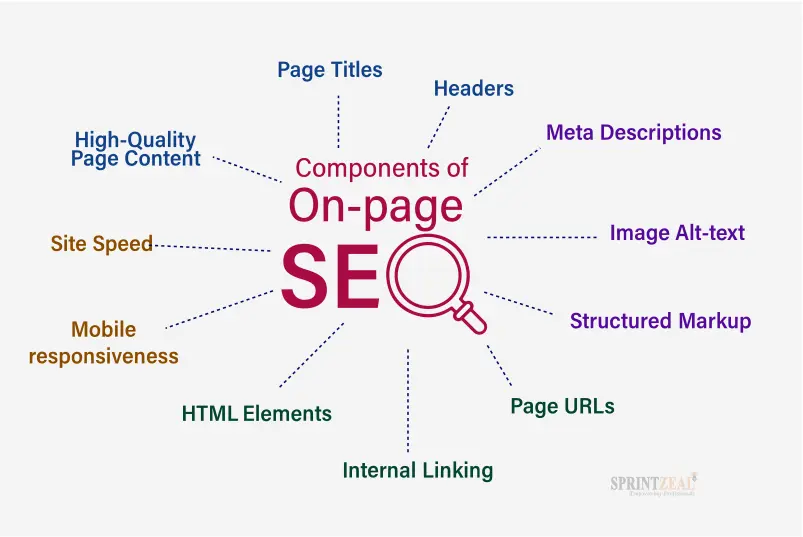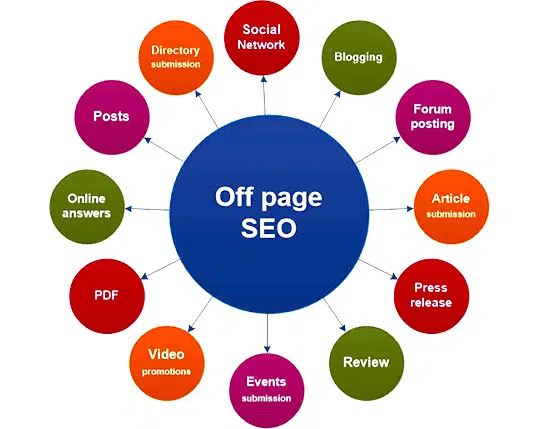
In today’s digital world, SEO where millions of websites compete for user attention, simply having an online presence is not enough. Businesses and individuals must actively work to ensure that their websites are easily discoverable by their target audience In this case, Search Engine Optimization is helpful. It is the foundation of digital marketing and a powerful tool for driving traffic, improving visibility, and boosting sales. In this blog, we will explore what is, why it is essential, and the difference between on-page and off-page SEO, along with their benefits.
What is SEO?

SEO stands for Search Engine Optimization In order to raise your website’s ranking on search engine results pages (SERPs) like Google, Bing, or Yahoo, the you must optimize it.
better your website ranks, the more likely users are to click on it, which results in more traffic and potentially more business.
Its involves various strategies and practices to make your website more attractive to search engines. These practices ensure that your website meets search engine criteria for relevance, quality, and user experience.
Why Do We Need SEO?

Here are several key reasons why it is crucial for any online presence:
1. Increased Visibility and Traffic
When users search for information online, they usually click on the first few results. It helps your website appear in those top positions, which means more people will visit your site.
2. Builds Credibility and Trust
Websites that rank higher are generally seen as more trustworthy and reliable. Users tend to trust Google’s algorithm, so a higher ranking automatically builds credibility.
3. Better User Experience
It is not just about keywords—it also includes improving site speed, mobile-friendliness, and easy navigation. All these factors enhance the user experience and keep visitors on your site longer.
4. Cost-Effective Marketing
Compared to paid advertising, It provides long-term results with relatively lower costs. You can draw steady visitors without constantly purchasing advertisements after you rank highly.
5. Competitive Advantage
You run the risk of losing market share if you don’t invest in while your rivals do. It ensures you stay competitive in your industry.
What is On-Page SEO?

On-page SEO refers to the optimization strategies that are applied directly on your website. These elements are entirely within your control and help search engines understand the content and structure of your site.
Key Elements of On-Page SEO:
- Title Tags – The title of each page should include the main keyword and clearly describe the page’s content.
- Meta Descriptions – Short summaries that appear below the title in search results, which can influence click-through rates.
- Header Tags (H1, H2, H3…) – Organize content and include relevant keywords.
- Keyword Optimization – Using the right keywords in the right places like content, URLs, titles, and alt text.
- Internal Linking – Connecting related pages within your website to guide users and improve navigation.
- Image Optimization – Using descriptive file names and alt tags to help search engines understand images.
- Mobile Responsiveness – Ensuring your site works well on all devices.
- Page Load Speed – A fast-loading site improves user experience and reduces bounce rates.
- Content Quality – Providing original, valuable, and well-structured content that answers the user’s intent.
Uses of On-Page SEO
- Improves Content Relevance: Ensures that your content matches what users are searching for.
- Increases Engagement: Good structure and quality encourage users to stay longer.
- Better Indexing: Helps search engines crawl and understand your website structure easily.
- Boosts Ranking: Properly optimized pages are more likely to rank higher in SERPs.
What is Off-Page SEO?

Off-page SEO refers to all the activities performed outside of your own website to improve its ranking. These strategies help build authority, relevance, and trustworthiness of your website in the eyes of search engines.
Key Elements of Off-Page SEO:
- Backlinks – Getting other reputable websites to link to your content.
- Social Media Engagement – Promoting content through social media channels.
- Influencer Outreach – Collaborating with influencers or bloggers for promotion.
- Guest Blogging – Writing articles on other websites with a link back to your site.
- Forum Participation – Answering questions and contributing to niche communities.
- Local Listings & Citations – Listing your business on platforms like Google My Business, Yelp, etc.
Uses of Off-Page SEO
- Boosts Website Authority: Reputable backlinks from reputable websites tell search engines that your website is reliable.
- Drives Referral Traffic: Links on external websites can bring in new visitors.
- Enhances Brand Awareness: Off-site promotion improves visibility and recognition.
- Improves SERP Ranking: The more quality backlinks and mentions you get, the better your chances of ranking higher.
- Boosts Domain Reputation: The more your site is mentioned positively on the web, the more search engines trust it.
On-Page SEO vs. Off-Page SEO
| Feature | On-Page SEO | Off-Page SEO |
| Location | On your website | Outside your website |
| Control | Fully in your control | Depends on others (links, mentions) |
| Focus | Content, structure, UX | Authority, reputation, exposure |
| Main Goal | Make content readable and relevant | Build credibility and popularity |
Both types of SEO are essential. On-page SEO ensures that your website is optimized for search engines and users, while off-page SEO helps to build your site’s authority and drive more traffic.
Conclusion
In conclusion, SEO is a must for anyone who wants to succeed online—whether you’re running a business, writing a blog, or managing an eCommerce store. It guarantees that the correct individuals view your website at the right moment.By mastering both on-page and off-page SEO, you can improve your site’s visibility, build a loyal audience, and achieve long-term digital success.
Start optimizing today—because the higher you rank, the more you grow.



